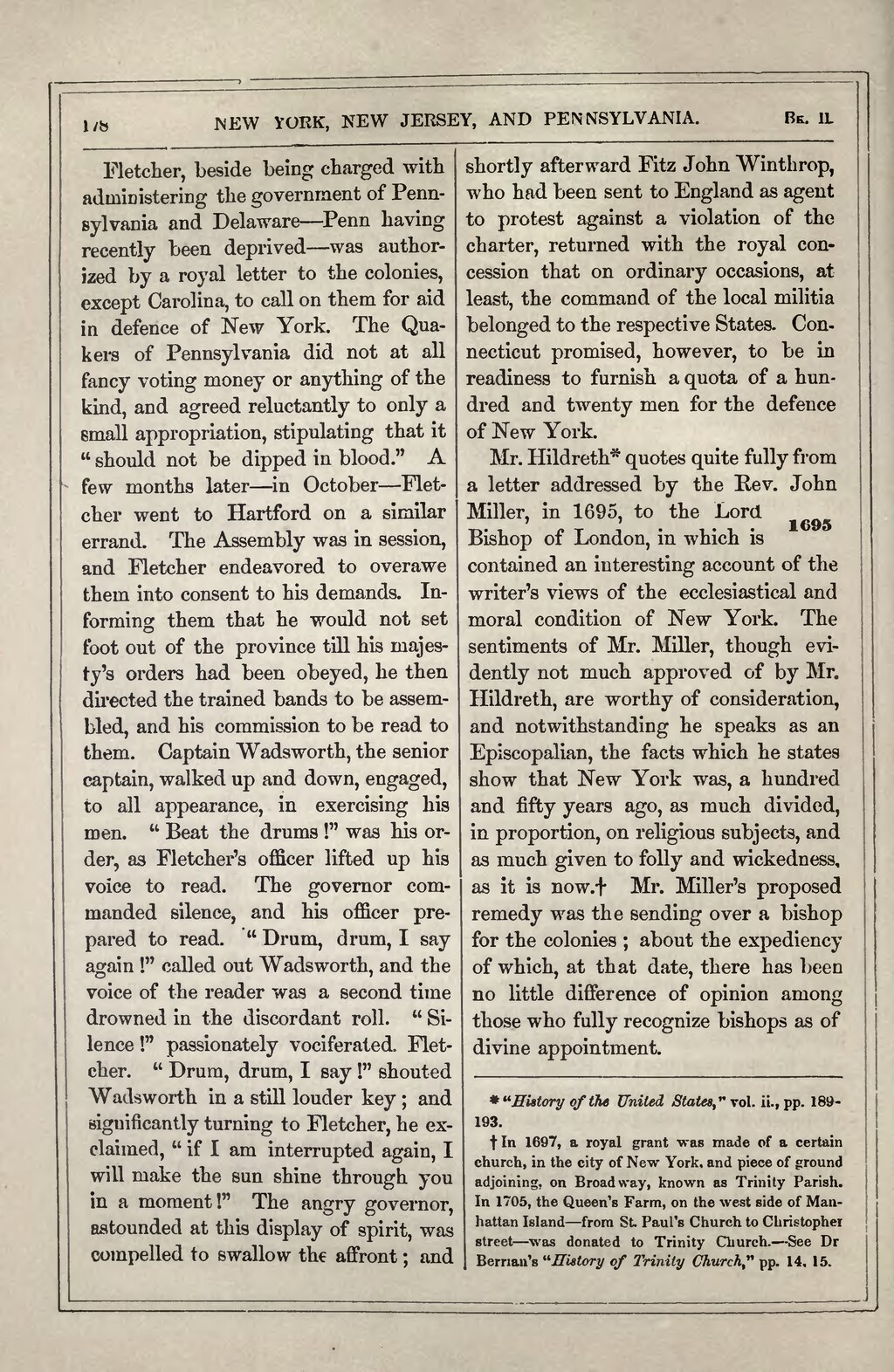Fletcher, beside being charged with administering the government of Pennsylvania and Delaware—Penn having recently been deprived—was authorized by a royal letter to the colonies, except Carolina, to call on them for aid in defence of New York. The Quakers of Pennsylvania did not at all fancy voting money or anything of the kind, and agreed reluctantly to only a small appropriation, stipulating that it "should not be dipped in blood." A few months later—in October—Fletcher went to Hartford on a similar errand. The Assembly was in session, and Fletcher endeavored to overawe them into consent to his demands. Informing them that he would not set foot out of the province till his majesty's orders had been obeyed, he then directed the trained bands to be assembled, and his commission to be read to them. Captain Wadsworth, the senior captain, walked up and down, engaged, to all appearance, in exercising his men. "Beat the drums!" was his order, as Fletcher's officer lifted up his voice to read. The governor commanded silence, and his officer prepared to read. "Drum, drum, I say again!" called out Wadsworth, and the voice of the reader was a second time drowned in the discordant roll. "Silence!" passionately vociferated. Fletcher. "Drum, drum, I say!" shouted Wadsworth in a still louder key; and significantly turning to Fletcher, he exclaimed, "if I am interrupted again, I will make the sun shine through you in a moment!" The angry governor, astounded at this display of spirit, was compelled to swallow the affront; and shortly afterward Fitz John Winthrop, who had been sent to England as agent to protest against a violation of the charter, returned with the royal concession that on ordinary occasions, at least, the command of the local militia belonged to the respective States. Connecticut promised, however, to be in readiness to furnish a quota of a hundred and twenty men for the defence of New York.
Mr. Hildreth[1] quotes quite fully from a letter addressed by the Rev. John Miller, in 1695, to the Lord Bishop of London, in which is contained an interesting account of the writer's views of the ecclesiastical and moral condition of New York. The sentiments of Mr. Miller, though evidently not much approved of by Mr. Hildreth, are worthy of consideration, and notwithstanding he speaks as an Episcopalian, the facts which he states show that New York was, a hundred and fifty years ago, as much divided, in proportion, on religious subjects, and as much given to folly and wickedness, as it is now.[2] Mr. Miller's proposed remedy was the sending over a bishop for the colonies; about the expediency of which, at that date, there has been no little difference of opinion among those who fully recognize bishops as of divine appointment.
- ↑ "History of the United States," vol. ii., pp. 189-193.
- ↑ In 1697, a royal grant was made of a certain church, in the city of New York, and piece of ground adjoining, on Broadway, known as Trinity Parish. In 1705, the Queen's Farm, on the west side of Manhattan Island—from St Paul's Church to Christopher street—was donated to Trinity Church.—See Dr Bernan's "History of Trinity Church," pp. 14, 15.
